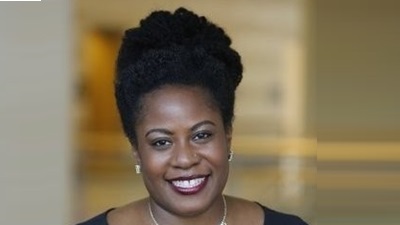
Maven Clinic, the world’s largest virtual clinic for women’s and family health, today announced the appointment of Dr. Rachel Hardeman, a nationally recognized reproductive health equity researcher, as Maven’s newest Visiting Scientist. As part of its commitment to driving equitable health outcomes for women and families, Maven also announced that it has established a Community Advisory Board and formalized a Culturally and Linguistically Appropriate Services (CLAS) program aligned to the Department of Health and Human Services (HHS) standards for health equity.
As Maven’s newest Visiting Scientist, Dr. Hardeman will advance Maven’s clinical research roadmap and provide strategic input on care model design, with a focus on Black maternal health disparities. Dr. Hardeman’s extensive research uses the tools of population health science and reproductive justice to measure the empirical consequences of racism on pregnant people. Her findings have appeared in publications such as the New England Journal of Medicine and the American Journal of Public Health. She currently serves as the first ever Blue Cross Endowed Professor of Health and Racial Equity at the University of Minnesota.
“At Maven, we know we cannot fix what we cannot see, and we cannot see what we do not measure,” said Dr. Neel Shah, Chief Medical Officer of Maven Clinic. “Dr. Hardeman has meticulously measured the impact of racism on public health and reproductive outcomes. We look forward to translating her pathbreaking work to advance industry approaches to health equity.”
Dr. Rachel Hardeman is the third annual Visiting Scientist to join Maven’s clinical team. Dr. Alex Peahl, an expert in prenatal care innovation, joined in 2022, and used her tenure to examine the use of telehealth for preventative care during pregnancy. Dr. Constance Guille, a reproductive psychologist, joined in 2023 and published research evidencing Maven’s impact on maternal mental health outcomes.
“Together with the clinical teams at Maven, I look forward to applying population health tools to the digital world, so that we can proactively measure social determinants of health on virtual platforms, and address gaps as they occur,” said Dr. Rachel Hardeman.
Maven’s newly-developed Community Advisory Board will also play a role in ensuring health equity is core to the company’s clinical and care delivery strategies. Composed of seven Maven providers, members, and leaders of community-based maternal health organizations across the country, the Community Advisory Board was established to identify and prioritize opportunities to improve upon Maven’s care model, ensuring it is comprehensive of the needs of underserved populations and delivering culturally appropriate care.
The Community Advisory Board convened for the first time in February, where members discussed opportunities to scale and enrich the experience of virtual doulas on Maven’s platform. Recent Maven research published in Obstetrics and Gynecology found that virtual doula care improves birth experiences and reduces the odds of C-section at rates comparable to in-person doula care, with the greatest impact seen among Black members. Maven’s Maternity program expands access to doula care through on-demand virtual doulas, referrals to vetted in-person doulas, and doula benefit administration for select employers.
Since its founding in 2014, Maven’s virtual care model has delivered personalized support tailored to meet the unique needs, circumstances, and experiences of women and families around the world. From developing a diverse provider network to investing in language accessibility, Maven has consistently raised the standard for equitable care in digital health. Today, 40% of practitioners on the platform identify as Latine, Black/African American, Asian, Middle Eastern or Multi-Racial; 11% identify as LGBTQIA+; and care is offered in 35+ different languages.
Over the past year, Maven has built on this foundation, formalizing a Culturally and Linguistically Appropriate Services (CLAS) program aligned to HHS standards for health equity. Maven’s CLAS program encompasses all 15 actions outlined by HHS to advance health equity, improve quality, and help eliminate health care disparities, with a focus on investing in data collection and analysis, allowing Maven teams to clearly identify gaps in care and improvements for driving health equity. It also includes commitments to workforce development, ensuring that 100% of Maven front-line staff receive comprehensive training in health equity.
“One of the challenges with health equity, is that while many people are beginning to adapt the framework, few people understand how to operationalize it,” said Dr. Dawn Godbolt, Director of Health Equity at Maven Clinic. “Our CLAS program and Community Advisory Board embed health equity into the rigor of our clinical model by codifying routine data monitoring, feedback loops, and the development of action plans that address disparities in both utilization and outcomes across the Maven platform.”
About Maven Clinic
Maven is the world’s largest virtual clinic for women and families on a mission to make healthcare work for all of us. Maven’s award-winning digital programs provide clinical, emotional, and financial support all in one platform, spanning fertility & family building, maternity & newborn care, parenting & pediatrics, and menopause. Employers and health plans trust Maven’s end-to-end platform to improve clinical outcomes, reduce healthcare costs, and provide equity in benefits programs. Recognized for innovation and industry leadership, Maven has been named to the Time 100 Most Influential Companies, CNBC Disruptor 50, Fast Company Most Innovative Companies, and FORTUNE Best Places to Work. Founded in 2014 by CEO Kate Ryder, Maven has raised $300 million in funding from top healthcare and technology investors including General Catalyst, Oak HC/FT, Sequoia, Dragoneer Investment Group, and Lux Capital. To learn more about Maven, visit us at mavenclinic.com.










